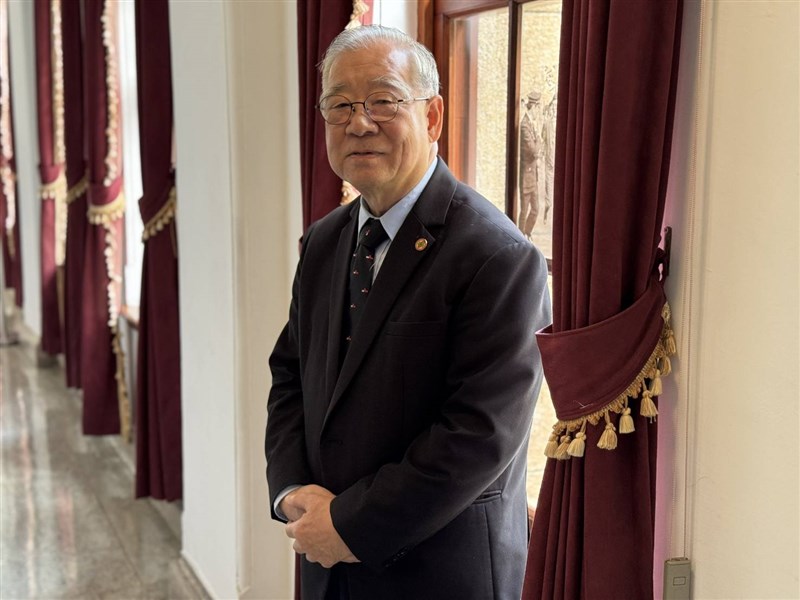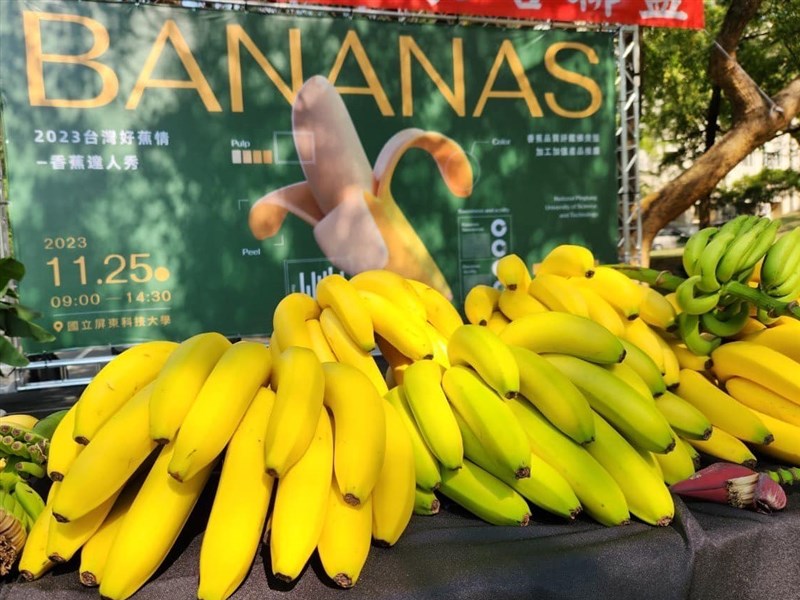FEATURE / Fala Formosa! Taiwanese expats to Brazil carve 7 decades of immigrant stories
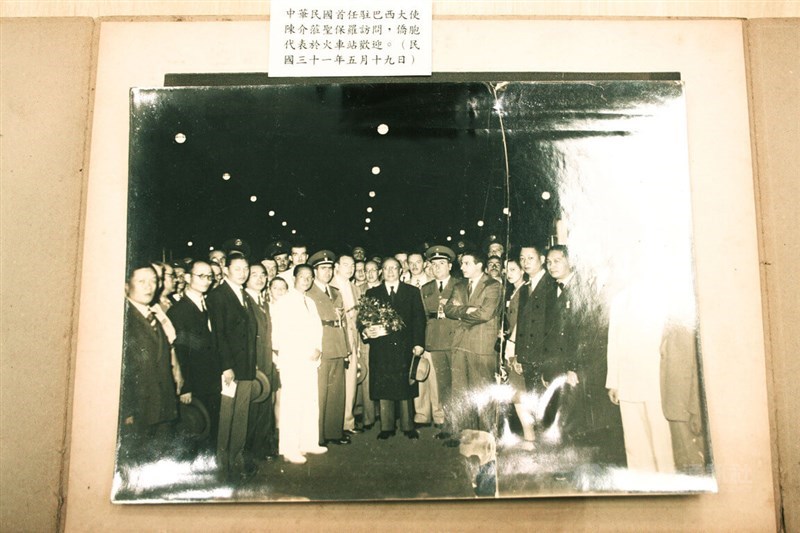
By Tang Ya-lin and James Lo, CNA staff reporter and writer
São Paulo is not typically thought of as a hotspot for Taiwanese restaurants and Boba tea shops, much less places that attract long lines of patrons.
Yet there are Taiwanese eateries such as Mapu (媽圃), owned by the Lin (林) family, that have become deeply rooted in the industrial city and attract throngs of visitors.
Established in 1979, Mapu first served ethnic Hakka dishes prepared by first-generation expat and founder Mrs. Lin because she was homesick.
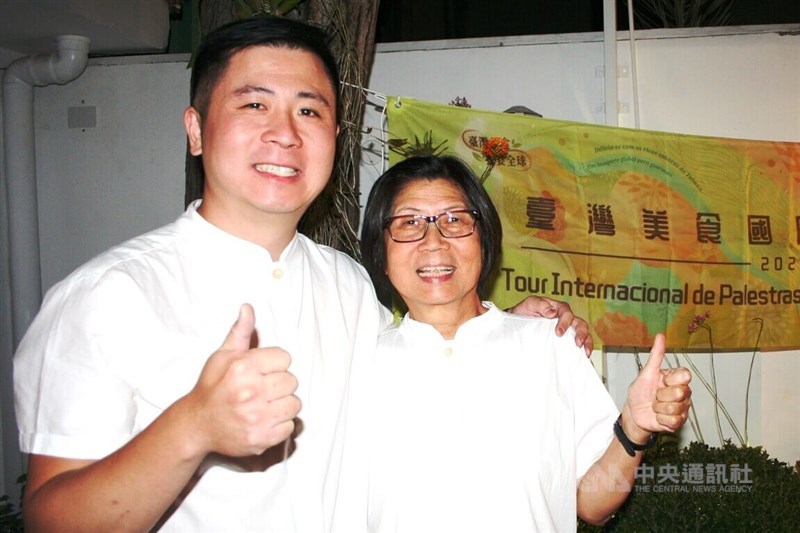
Gradually, her restaurant shifted from Hakka cuisine to other signature Taiwanese dishes such as braised pork rice and fatty pork gua bao, whose aromas made a recognizable splash around the Asian-based Liberdade District located in São Paulo's subprefecture of Sé, she told CNA.
The Lin family is just one of several Taiwanese families who have built a neighborhood around the Rua 25 de Março street by the Asian district, a community with a history spanning seven decades made up of ethnically Hakka and Hoklo Taiwanese people.
More broadly, these families are among a decent-sized contingent of immigrants from Taiwan who have made their mark on Brazil through food, agriculture and philanthropy.
Of perseverance and faith
Currently, most ethnic Chinese immigrants to Brazil reside around São Paulo, with approximately 70,000 individuals hailing from Taiwan and about 200,000 from China.
According to Brazilian census data, the first Taiwanese expat to the South American country was probably Dr. Yang Yu-chi (楊毓奇), the eighth director of Changhua Christian Hospital.
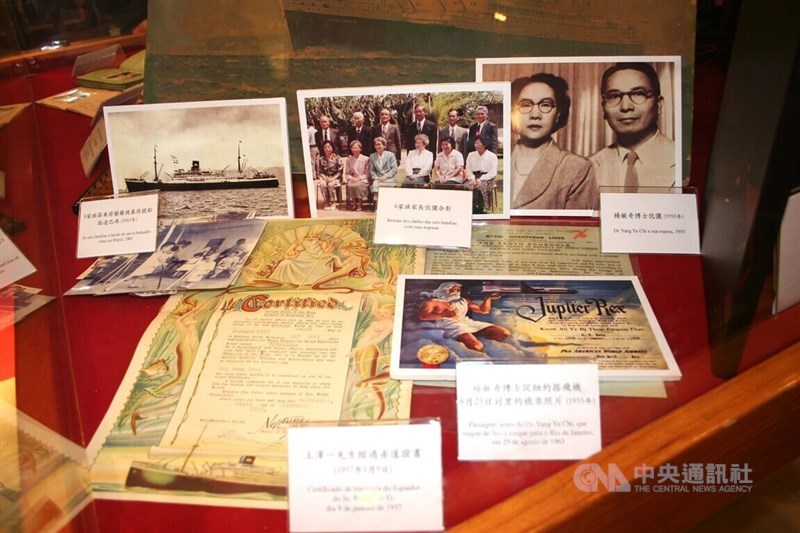
After stepping down from his leadership role at the historical hospital, he was sponsored to further his studies in England, the home of Changhua County Hospital's founders Dr. David Landsborough III and Rev. Campbell Naismith Moody, in 1953.
Later, Yang transited to the United States before getting a visa to travel to Brazil in 1955, where he stayed for the remainder of his life.
The first significant group of Taiwanese immigrants after that consisted of six Christian families from a Changhua Presbyterian congregation who applied to become farmers in the South American country.
The group of 32 departed on the MS Tegelberg from Keelung on Aug. 20, 1963 with their farming tools for Santos, the main port that serves São Paulo.
Five days after arriving in Brazil, the families jointly bought a six-hectare farm for US$4,000 east of São Paulo near the city of Mogi das Cruzes, and it has since expanded into a base for over 80 households engaged in mushroom farming.
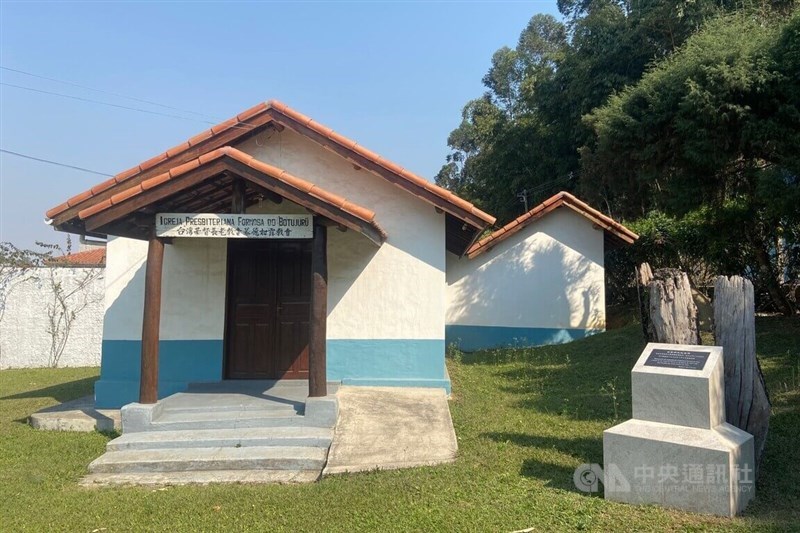
The community is distinguished by a giant Taiwanese Presbyterian church visible from the São Paulo to Rio de Janeiro highway that stands among mushroom sheds that now produce 85 percent of Brazil's mushrooms.
"As soon as you see the silvery shine of mushroom sheds, you know you are among your own people,'" said Pastor Chi Tsung-nan (紀聰男), a leader of the community and the nephew of Pastor Chi Ching-cheng (紀慶誠), who was one of the patriarchs of the original six Taiwanese families.
Today, descendants of the Taiwanese Christian farmers not only run the largest Chinese church in Brazil, but also the Seminário Teológico Servo de Cristo (Servant of Christ Theological Seminary), the biggest ethnic Chinese seminary in South America, further deepening Taiwanese roots in Brazil through faith and dedication.
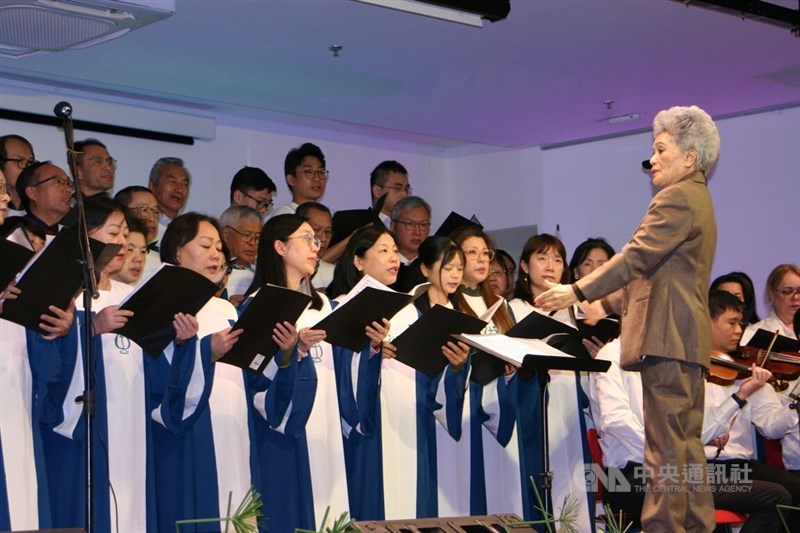
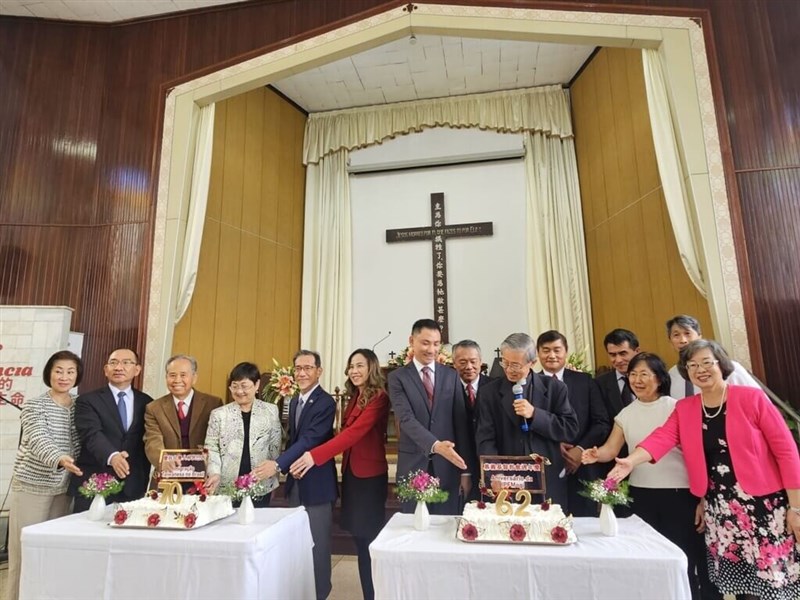
Of commitment and contributions
Aside from eateries such as Mapu and its current owner Duilio Lin (林秉宏) or the mushroom farming community outside São Paulo, individuals such as 84-year-old philanthropist Liu Hsueh-lin (劉學琳) have also made important contributions to local society.
Lin, a former president of the World Taiwanese Chambers of Commerce, is an example of an entrepreneur who started with nothing before giving back to his second home after achieving success.
He said he was drawn to Brazil when he was 20 years old after reading about the South American country in a friend's magazine.
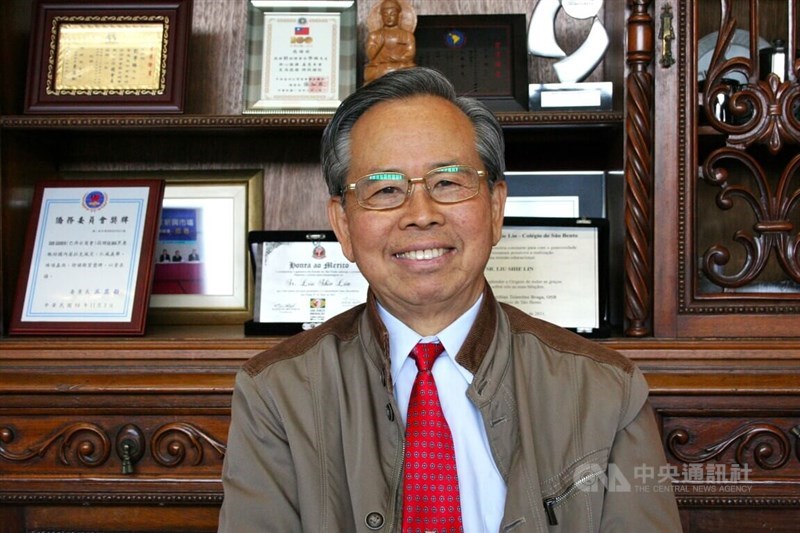
By Oct. 10, 1965, the 24-year-old Liu and his two older brothers Liu Hsueh-te (劉學德) and Liu Hsueh-kuei (劉學圭) were reunited at the Port of Santos and soon began working in construction for English bankers employed by banks in the city of Itirapina northwest of São Paulo.
They handled projects such as mansions, farms, horse stables and even private runways for the English bankers, and after a year of hard work, they were able to save up enough money to expand their family group to a company based in São Paulo.
By 1975, they were employing nearly 400 workers and building 200 housing units a year.
Beyond his family's business achievements, however, Liu is best known for his philanthropic contributions to the country.
"Everything should be shared and not owned exclusively by one person," was what Liu's mother used to tell him. "If someone offers you a bowl of water, you should return with a bowl of tea."
That life motto was what prompted Liu to start donating to facilities for disabled children as early as the 1980s.
In 2007, he founded an education center that has provided free music, language and computer classes to over 3,000 underprivileged children, and some of those with good enough grades were even sponsored to further their studies in Taiwan.
He also assisted Brazil's late Bishop José Song Sui-Wan (宋瑞雲), who was of Chinese descent, in building an Indigenous children's rehabilitation center in the Amazon region.
Between 2011 and 2020, Liu funded the establishment of kindergartens and daycare centers for São Paulo's Monastery of Saint Benedict.
70 years of commitment
Liu's most lasting contribution, however, may be chronicling the history of Taiwanese immigrants like him in Brazil over the past seven decades.
He organized a committee that eventually published "Raiz: Historia da Imigracao Taiwanesa no Brasil" (Root: History of Taiwanese Immigration to Brazil) in 2024, which won him an award from the Federation of Overseas Chinese Associations of Taiwan's expat communities.
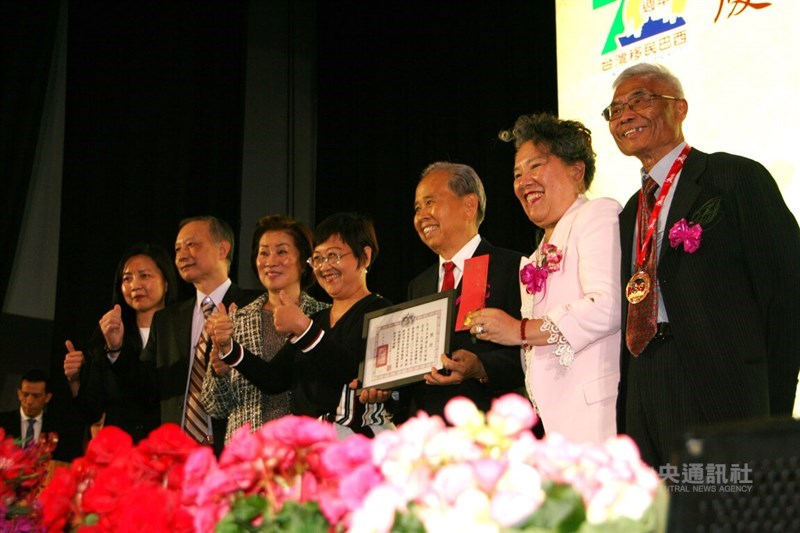
The Taiwanese presence in Brazil will never match that of Japan or even China, but through restaurants making Taiwanese specialties, farms growing mushrooms, or philanthropic endeavors helping vulnerable children, Taiwanese immigrant families continue to have an impact on South America's biggest country.
Enditem/ls
-
![To some, transitional justice has yet to expunge ghosts of 228 Incident]() To some, transitional justice has yet to expunge ghosts of 228 IncidentWhen Kenneth Wang (王文宏) recounted his father's suffering during the 228 Incident of 1947, he used humor to break up the difficult memories.02/28/2026 09:49 AM
To some, transitional justice has yet to expunge ghosts of 228 IncidentWhen Kenneth Wang (王文宏) recounted his father's suffering during the 228 Incident of 1947, he used humor to break up the difficult memories.02/28/2026 09:49 AM -
![Banana threat: Taiwan decodes secret to tackling banana killer TR4]() Banana threat: Taiwan decodes secret to tackling banana killer TR4When the banana-killing Panama disease was detected in September 2025 in Ecuador, the world's largest banana exporter, it sent chills through the global industry.02/20/2026 12:30 PM
Banana threat: Taiwan decodes secret to tackling banana killer TR4When the banana-killing Panama disease was detected in September 2025 in Ecuador, the world's largest banana exporter, it sent chills through the global industry.02/20/2026 12:30 PM -
![Beyond new clothes: Children in need get private LNY shopping session]() Beyond new clothes: Children in need get private LNY shopping sessionOutside the flagship store of Taiwanese apparel brand NET in downtown Taipei, a queue -- made up of children and their parents -- had formed well before regular opening hours, despite the chilly late-January morning.02/14/2026 04:03 PM
Beyond new clothes: Children in need get private LNY shopping sessionOutside the flagship store of Taiwanese apparel brand NET in downtown Taipei, a queue -- made up of children and their parents -- had formed well before regular opening hours, despite the chilly late-January morning.02/14/2026 04:03 PM
-
Business
Taiwan's January export orders hit record US$76.91 billion, up 60 percent
03/04/2026 10:11 PM -
Society
New Taipei censured for not preventing sex offender from running Go class
03/04/2026 10:02 PM -
Politics
KMT nominates female candidates for county magistrate elections
03/04/2026 09:31 PM -
Society
MOL to expand childcare subsidy scheme to encourage employer support
03/04/2026 08:59 PM -
Business
TSMC aims to complete new Tainan fab in 2028 amid AI-driven expansion
03/04/2026 08:35 PM
